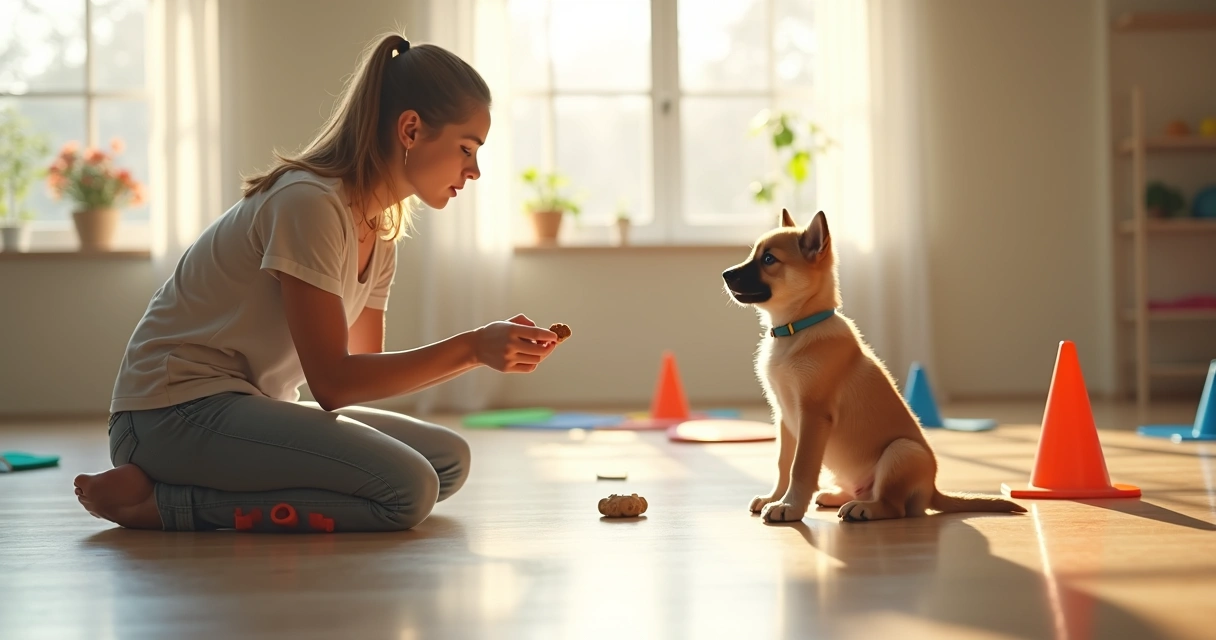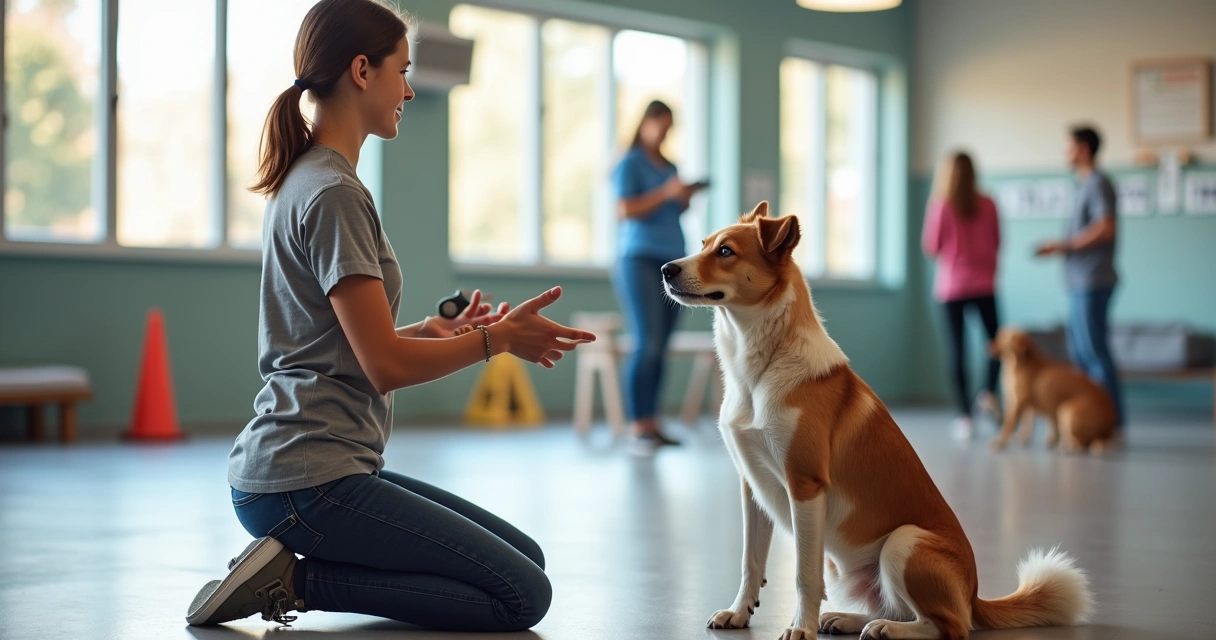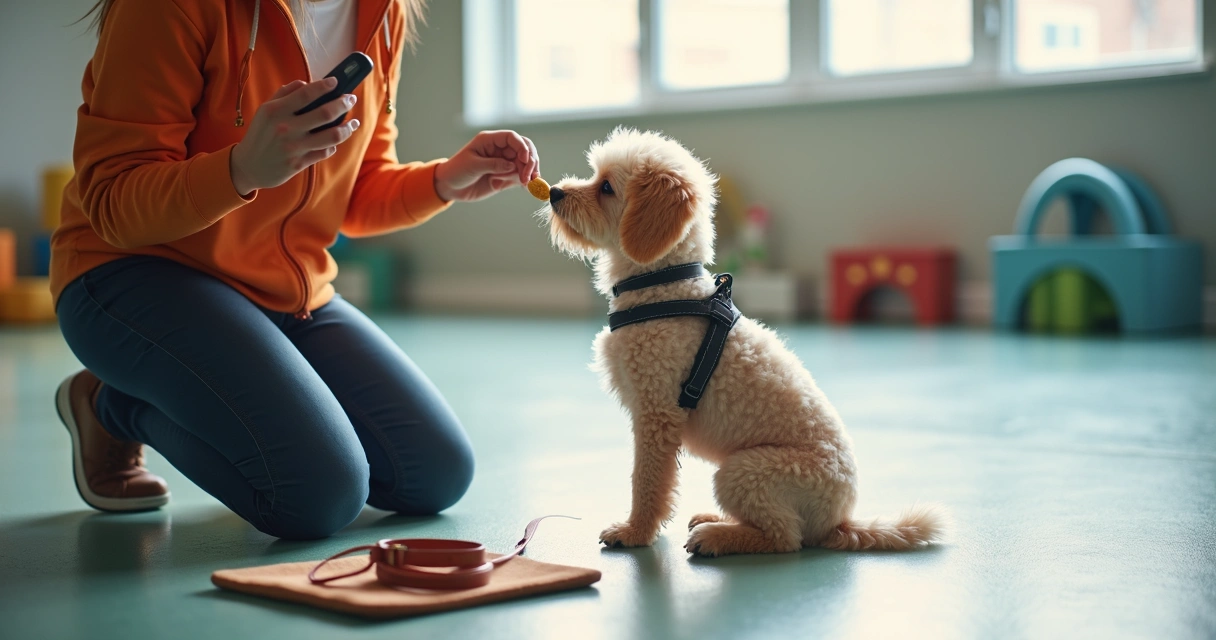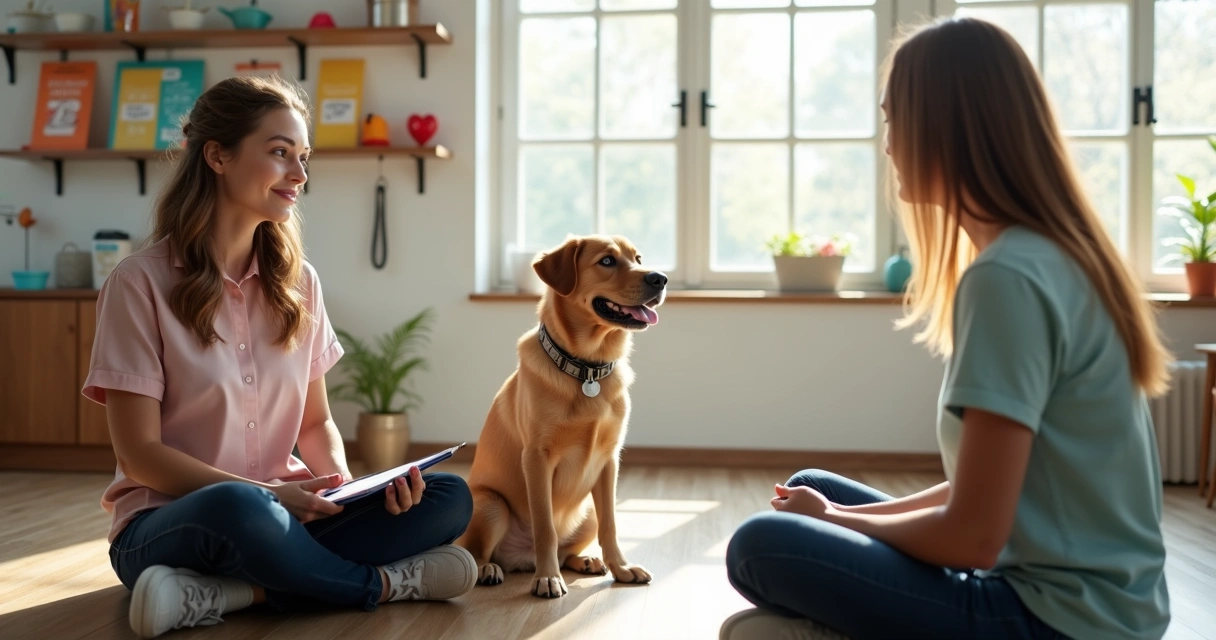I still remember the first week I brought home a six-pound puppy who thought socks were birds. By day three, we were both tired. By week two, we had our first sit. It felt small, yet it changed the tone of the house. Training starts earlier than many people expect. It also lasts longer than many people plan. That is good news. You have time, and you have a path.
What do veterinarians in 2025 say about the right age? The short answer is sooner than you think, with care, and with positive methods. For dogs and cats, the first months set a tone. Not everything is set in stone, of course. Older pets can learn very well. Still, early wins build trust, and trust makes learning light.
Start small. Start kind. Start now.
At Dogtown in Gloucester, MA, trainers see this play out every day in their small-group sessions. They match by size and temperament so the room feels calm. That calm matters for young brains. If you want help shaping those early weeks, their personalized training programs and free pre-enrollment assessments make the first step feel less scary.
What vets highlight for puppies in 2025
Veterinary behavior teams point to a window when puppies soak up the world with less fear. The critical socialization period for puppies runs roughly from 3 to 12 weeks. During this time, gentle exposure to people, dogs, surfaces, sounds, car rides, and handling can lower the odds of later behavior issues. The key word is gentle. Not a busy street parade on day one. Think quiet, brief, positive, and always paired with treats or play.
What about vaccines? Many vets in 2025 support well-run puppy classes before full vaccination, as long as the space is clean and the group is screened. Your own vet’s advice should lead, of course. I still carry wipes in my pocket and keep meet-and-greets short.
- Weeks 3–7: breeder or foster lays the base with touch, sounds, and mild novelty.
- 8–12 weeks: new home begins daily micro-lessons. Sit, name response, come, trade, and calm handling.
- 12–16 weeks: simple leash skills, polite greetings, alone-time confidence, and play with stable role-model dogs.
- 4–6 months: teen brain arrives. You will repeat. That is normal.
I like to fold training into life. Sit for the food bowl. Come for a tossed toy. Trade for a chew. If you need safe practice time while you work, the structured play at Dogtown’s dog daycare and day camp can help your puppy learn around other dogs without chaos.
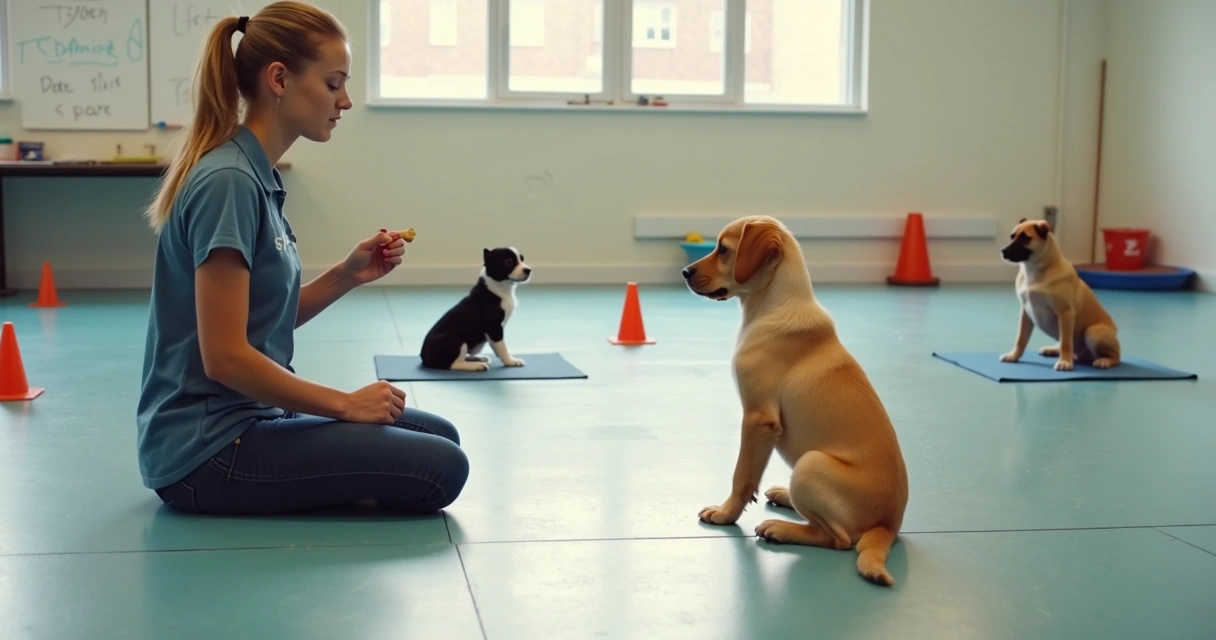
How early is too early for kittens?
We talk about puppies a lot, yet kittens carry their own early window. Research in the Journal of Feline Medicine and Surgery suggests kittens are most open to social learning around 2 to 9 weeks. Early, gentle handling and exposure to sounds, carriers, nail trims, and people can help prevent fear later. The 2021 AAHA/AAFP Feline Life Stage Guidelines also encourage positive-reinforcement-based training. Yes, training for cats. Target sticks, stationing on a mat, and carrier games keep stress low when life gets busy.
- 2–9 weeks: short, warm handling sessions, soft sounds, and simple play with toys.
- 8–12 weeks: litter box confidence, carrier treats, name response, touch for vet care.
- 12–16 weeks: sit for meals, come to a mat, gentle harness intro if you wish.
If your kitten missed that early window, do not panic. Go slower. Use tiny steps and higher-value food. I have seen a five-year-old cat learn to enjoy the carrier with three weeks of daily sprinkles of tuna.
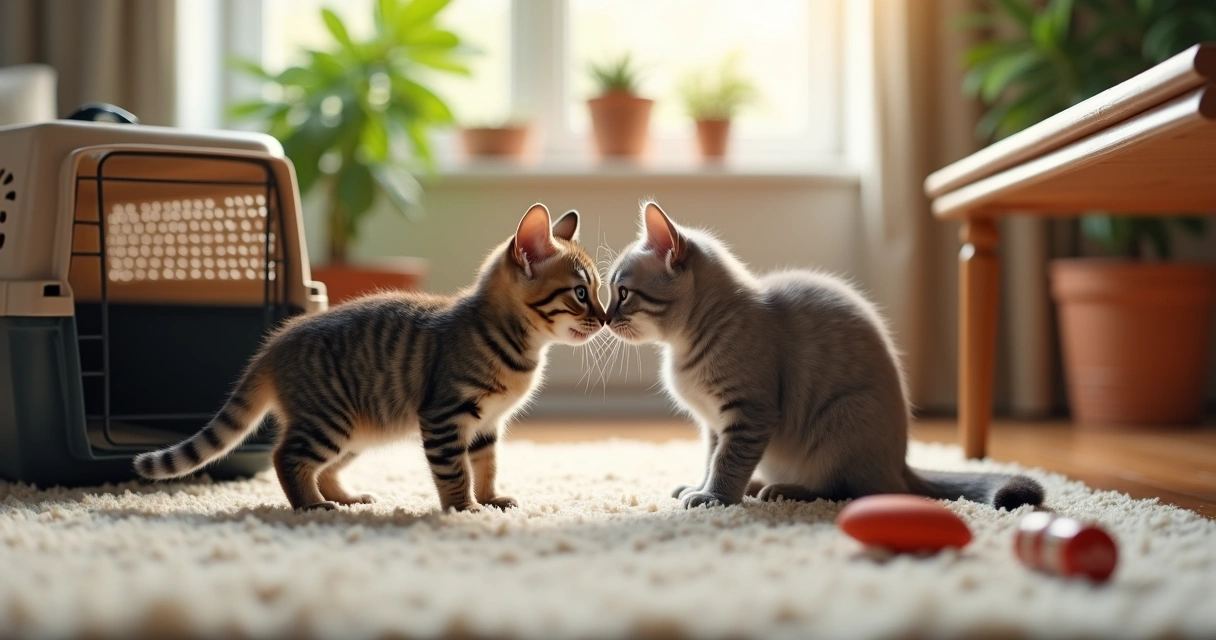
Signals that say go now
How do you know it is time to start? These signs point to today.
- Jumping or mouthing more each week.
- Hiding from sounds or strangers.
- Pulling so hard walks feel tense.
- Refusing the carrier or nail trims.
- Guarding toys or food, even a little.
Small problems are easier to shift than big ones. If you want a clear plan, Dogtown’s training team builds step-by-step lessons for puppies and kittens, and also for adults who picked up tricky habits.
Building sessions that stick
Early sessions should feel like a game. Keep them short, fun, and frequent.
- Use soft treats your pet loves. Small, pea-sized, quick to chew.
- Train in calm rooms first. Add mild distractions later.
- End while your pet still wants more.
- Pair handling with food. Touch ear, treat. Lift paw, treat.
- Repeat simple cues in real life. Doors, bowls, leashes, and greeting moments become teachers.
For dogs, crate time is a skill, not a timeout. Feed in the crate, drop a chew, open the door often. For cats, the carrier is a snack bar. Toss treats near the door, then inside, then feed dinner in it. It feels slow. Then one day the door closes and your cat purrs. That is a quiet win.
What about older pets?
Missed the early window? You can still make big changes. Adult dogs learn with the same tools, though you may go in smaller steps. Adult cats respond well to mat training, clicker work, and calm play. I have taught a gray-muzzled shepherd to walk on a loose lead in two weeks. I have also seen a teen puppy need two months. Different stories, same tools. Patience plus food.
If you need safe overnight care during travel while you work on manners, the staff at Dogtown keeps routines steady through their boarding service so training does not fall apart when you are away. And if a bath or brush has become a wrestling match, their grooming team can pair gentle handling with treats so future visits feel easier.
How Dogtown fits into the plan
Local support helps when life gets busy. Dogtown’s 10,000-square-foot space in Gloucester runs small, supervised groups. They group by size and temperament, which keeps stress low and learning steady. During daycare, dogs practice short skills woven into play, and owners get feedback at pickup. That daily loop is nice. Perhaps that is why so many small wins stack up there.
If you are unsure where your puppy or kitten falls on the timeline, Dogtown offers a free pre-enrollment assessment. It is quick. It is friendly. It gives you a plan for training, social time, and, if needed, quiet breaks.
Conclusion: the right age is now, with care
So, what is the right age in 2025? Start social learning as soon as your puppy or kitten is home, with gentle steps and positive rewards. Use the early weeks to build confidence. Keep sessions short. Ask your vet about health and class safety, and adjust pace for your pet’s needs. If you want help, let a trusted team guide you. Dogtown’s trainers and caregivers are ready to meet you, listen, and tailor the first steps. Schedule a free assessment, try a day at day camp or daycare, and see how a calm plan turns into a happy routine.
Frequently Asked Questions
What is the best age to train?
For puppies, begin basic training as soon as you bring them home, often around 8 to 10 weeks, while social exposure starts even earlier with the breeder or foster. For kittens, gentle social learning begins around 2 to 9 weeks. Adults can learn too, you just go in smaller steps.
How early can I start training?
Start on day one at home with short name games, sit for meals, and calm handling. For puppies, the critical socialization period for puppies runs about 3 to 12 weeks. For kittens, research in the Journal of Feline Medicine and Surgery points to 2 to 9 weeks for peak openness.
Is it safe to train young pets?
Yes, with care. Keep sessions short, cheerful, and low stress. For classes or group settings before full vaccination, ask your vet and choose clean, well-managed spaces with screened animals. Many veterinarians in 2025 support this approach when risk is managed.
What do vets recommend for training age?
Vets promote positive-reinforcement training from the start and early, gentle social exposure. For kittens, the 2021 AAHA/AAFP Feline Life Stage Guidelines back early socialization and reward-based methods. For puppies, build steady exposure between 3 and 12 weeks, then continue through adolescence.
How can I find a good trainer?
Look for reward-based methods, small groups matched by size and temperament, written plans, and clear progress reports. If you are near Gloucester, MA, Dogtown offers personalized training with free pre-enrollment assessments, plus supportive daycare and grooming that fit your plan.


